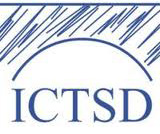 WTO members this week discussed a proposal by least developed countries (LDCs) to extend their transition period for implementing the organisation’s intellectual property rules, which is set to expire this July. Members at the 5-6 March meeting of the Council for Trade-Related Aspects of Intellectual Property Rights (TRIPS) also debated a proposed New Zealand law that would require plain packaging for tobacco products; a similar Australian policy is already facing three separate challenges at the WTO’s Dispute Settlement Body.
WTO members this week discussed a proposal by least developed countries (LDCs) to extend their transition period for implementing the organisation’s intellectual property rules, which is set to expire this July. Members at the 5-6 March meeting of the Council for Trade-Related Aspects of Intellectual Property Rights (TRIPS) also debated a proposed New Zealand law that would require plain packaging for tobacco products; a similar Australian policy is already facing three separate challenges at the WTO’s Dispute Settlement Body.
Members discuss LDC extension proposal
When the WTO agreements entered into force in 1995, LDCs were given until 1 January 2006 to implement the obligations contained in the then-newly adopted WTO TRIPS Agreement. In 2002, the LDC transition period was extended until 2016 for pharmaceutical patents, with a later 2005 decision extending the period for all intellectual property (IP) rights until July 2013.
At the WTO’s 2011 Ministerial Conference, trade ministers directed the TRIPS Council “to give full consideration to a duly motivated request from least developed country members for an extension of their transition period,” in light of the impending deadline. (See Bridges Daily Update, 18 December 2011)
In this context, Nepal presented on the LDC Group’s behalf a proposal – first tabled by Haiti at last November’s TRIPS Council meeting – that would extend the period for such members to enforce the TRIPS Agreement until a given country “cease[s] to be a least developed country member.”
“[LDCs] have not been able to develop their productive capacities, which limit their meaningful integration into the world economy [and] continue to be characterised by multiple structural constraints that include low per capita income, low level of human development, and extreme vulnerabilities to external shocks,” Nepal noted.
Non-LDC developing countries voiced their support for the extension proposal, sources told Bridges. India, for instance, indicated that the provisions of TRIPS Article 66.1, upon which the LDC request is made, “are precise and provide no discretion to the TRIPS Council to either deny the request or impose any further conditions on the LDCs.”
Developed countries, for the most part, also supported the principle of an extension of the transition period, while saying that further consultations are needed on its modalities. The EU, for its part, said that any extension of the transition period should be based on assessment of “the reality on the ground.”
Despite there being overall support regarding the possibility of an extension, members did not specify whether this should be granted for as long as a country remains an LDC – as per the LDC Group’s proposal – or whether another deadline should be set.
World Health Organization Director General Margaret Chan has publicly backed an extension of the LDC transition period. (See Bridges Weekly, 6 February 2013) The UN Development Programme and UNAIDS have similarly supported such a measure. In addition, around 375 civil society organisations have co-signed a letter calling on WTO members to unconditionally agree to an extension of the transition period, in line with the terms of the LDC Group’s request.
The topic will be examined at the upcoming TRIPS Council meeting in June, ahead of the July expiration date.
Tobacco plain packaging debate heats up again
Members at the TRIPS Council meeting also addressed a proposed New Zealand law that, if implemented, would require plain packaging for tobacco products. (See Bridges Weekly, 27 February 2013) The controversial legislation would require standardised packaging without trademarks, a drab monotone design, and prominent health warnings on cigarette packaging, with only a small line of text to distinguish one brand from another.
At this week’s meeting, the Dominican Republic – whose main export is tobacco – took the lead in commenting on the draft legislation, saying that it would hinder employment and would force producers to compete based on price instead of quality.
The Dominican Republic, Honduras, and Ukraine have each lodged separate complaints with the WTO’s Dispute Settlement Body (DSB) over a similar piece of legislation that has already been enacted in Australia. The three members have argued that the law is inconsistent with the WTO’s intellectual property rules and could have large negative impacts on local industries. (DS441, DS435, and DS434, respectively).
Australian officials have, in turn, responded that the law is necessary for achieving public health objectives and is in line with the 2001 Doha Declaration on TRIPS and Public Health and the WHO Framework Convention on Tobacco Control.
A dispute panel has already been established for Ukraine’s complaint against Australia; once the other two complainants lodge their second panel requests, a joint panel will be composed to hear the WTO cases together. Given that the Australian disputes are currently unresolved, the Dominican Republic urged New Zealand to wait for the final outcome of these cases before adopting its plain packaging legislation.
In response, New Zealand said it would continue developing the planned legislation – which is currently in the drafting stage – but may wait to see the outcome of the dispute before implementing it, echoing recent comments made by the country’s prime minister, John Key. It also recalled that the 2001 Doha Declaration says that TRIPS does not and should not prevent members from taking measures supportive of public health.
The plain packaging regime is a part of “a long policy development process,” New Zealand added, noting that smoking is its single largest cause of preventable death.
ICTSD reporting.




